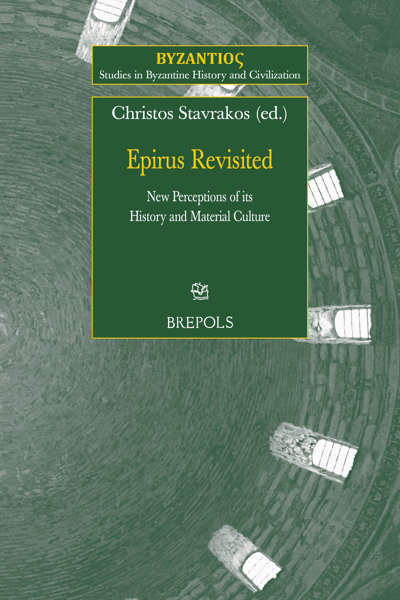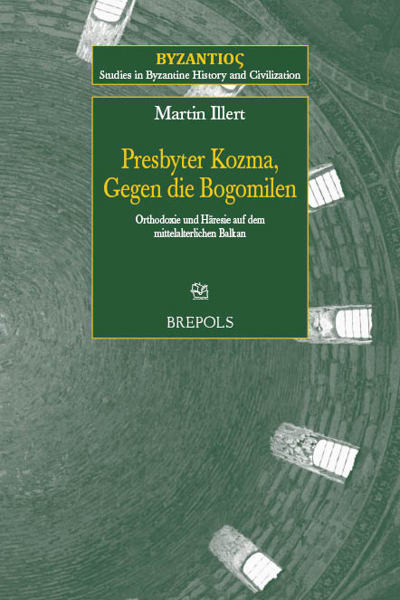
Correctness in Comparison
Negotiating Linguistic Norms in Greek from the Imperial Roman until the Later Byzantine Period (I–XV c. AD)
Klaas Bentein, Andrea Massimo Cuomo (eds)
- Pages: 320 p.
- Size:156 x 234 mm
- Language(s):English
- Publication Year:2026
- € 90,00 EXCL. VAT RETAIL PRICE
- ISBN: 978-2-503-61910-1
- Paperback
- Forthcoming (Mar/26)
- € 90,00 EXCL. VAT RETAIL PRICE
- ISBN: 978-2-503-61911-8
- E-book
- Forthcoming
- Contains contributions in Open Access
*How to pre-order?
This volume examines the applied, theorized, and disregarded rules that govern the writings of the Greeks: a thousand-year journey into the linguistic theories, literature, and society of the Greeks.
Klaas Bentein is Associate Research Professor at the Department of Linguistics, Ghent University, specializing in Greek linguistics, papyrology, historical sociolinguistics, and digital humanities. He has authored a monograph on the diachrony of the Greek verbal system (2016) and has edited several volumes on linguistic variation in the history of Greek.
Andrea M. Cuomo is Professor of Greek at the Department of Linguistics, Ghent University, and the Director of the Research Group ERC-CoG MELA ‘The Meaning of Language’. His focus is on Medieval Greek linguistics, the teaching of Greek, and textual semiotics applied to Byzantine literature.
This volume examines the relationship between linguistic usage and the norms that define it within the Greek language. Covering the Imperial Age, Byzantine period, and Renaissance, it draws on a wide range of sources—including literary texts, documentary material, and grammatical treatises—to trace the evolving concept of linguistic correctness.
Bringing together specialists in Post-classical and Medieval Greek, the volume investigates how linguistic norms and standards were shaped by their sociocultural and historical contexts. In addition to its exploration of theoretical frameworks for linguistic correctness, the volume addresses key themes such as the interaction between high and low registers in official documents and the contributions of Byzantine grammarians to the development of syntactic and stylistic conventions.
Incorporating approaches from (historical) sociolinguistics, the collection underscores the dynamic nature of Greek as it balanced tradition and innovation. Scholars of Greek language and linguistics will find in this volume a valuable resource for understanding the interplay of language, culture, and history across centuries.
Introduction by Klaas Bentein and Andrea Cuomo
Eleni Bozia, Hippocentaurs and Litigating Consonants: Imperial authors’ arguments for language renewal
Olga Tribulato, Correctness, Prescriptivism, Purism: The Case of Atticism
Martin Hinterberger, Outrageous spelling, impossible forms. Linguistic correctness and the editing of Byzantine texts or Why not to intervene correctively in certain cases
Klaas Bentein, Registerial hybridity in an Early Byzantine official archive. Making a case for historical diaglossia?
Maria Rosa Giuseppina De Luca, Searching for standards. A morpho-syntactic study on chrysobulls of the Komnenian era compared to Anna Komnene’s and Niketas Choniates’ historical works
Mariarosaria Zinzi, Some socio-historical remarks on the Greek of imperial documents of the Palaiologan period
Maria Giovanna Sandri, Diachronic variations in the ancient theory of breathings
Baukje van den Berg, Linguistic Correctness between Grammar and Style in Byzantine Scholarship: Eustathios in Context
Staffan Wahlgren, Byzantine Grammarians and Syntactic Normativity
Raf van Rooy, Byzantine Greek language norms in Renaissance practice: Theodore Gaza and the Collegium Trilingue in Leuven
Enrico Cerroni, The third person plural ending -ασι(ν) of the aorist: diachronic and stylistic issues




